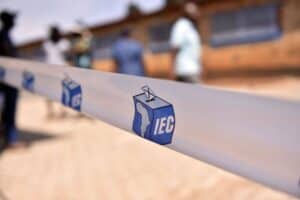Young South Africans skip voting, leaving the future to older generations' hands. This has been raising fears of unrest.

Voter apathy among South Africa’s young people will see older generations shouldering the responsibility of deciding the country’s future and destiny.
On X this week, political and international relations analyst Dr Sithembile Mbete raised concern about the low youth numbers on the voters’ roll.

LIVE interactive map, latest news, multimedia and more!
View MapALSO READ: Amend poll Bill to be fairer, say civil groups
She made rough calculations of the registered population in each age group using the Census 2022 figures and the Electoral Commission of South Africa’s (IEC) recent voter registration numbers.
Mbete found 86% of over-50 year olds were registered compared to 22% of the 18-19 group, 37% of the 20-29 group and 62% of the 30-39 group.
She said that if 86% of 18 to 39 year olds had registered, the voters’ roll would increase by about 10 million from 27 million to 37 million voters.
But there was no hope this weekend’s nationwide voter registration drive would change the situation much.
According to experts, there is a danger in this: it would breed a lost generation who would resort to protests, violence and alternative means to air grievances, which could destabilise the country.
ALSO READ: IEC recorded nearly 500 000 registrations since last voter registration weekend
Political economy analyst Daniel Silke said it was a grave concern that youth voter apathy was multiplying every election.
“This has the potential to undermine our democracy because a large portion of the South African population simply do not participate in the political or democratic process.
“When people do not participate they feel alienated, they feel the process has nothing for them and they can react in alternative ways and resort to violence and protests and take their grievances into the extra-parliamentary terrain,” Silke said.
Apathetic about everything
That is the real danger of this alienated or lost generation, he said. Independent analyst Sandile Swana said the loss of culture and family structure in African and coloured communities in particular had bred young people who had become apathetic about everything, including elections.
He said the older generation were trained in responsibilities and duties by their parents, at school and by Sunday school teachers.
After 1994, children did not have role models to follow as their fathers had abandoned their families.
ALSO READ: When will Ramaphosa announce the elections? Here’s what the data says
The lack of adult guidance had resulted in hopelessness and produced a generation that became apathetic and were copycats of American culture. This apathy had spilled over into politics and election participation.
The 2022 census showed that South Africa’s population stood at 62 million increasing from 51.7 million in 2011. Statistics SA said this represented an average annual growth rate of 1.8% between the two periods, which is the largest since 1996.
The IEC’s deputy chief electoral officer: outreach, Mawethu Mosery, said the number of youth who registered was low at about 30%.
He said a total of between three million and five million young people were not on the voters’ roll.
This was in contrast to adults who constituted about 70% of the voters’ roll while between four million and eight million were not yet on it.
Mosery confirmed that there were 10 million “missing voters”. Of those, about half were young people whom they were trying to reach.
Mosery said while the 2022 census showed that between 37 million and 40 million South Africans were eligible to vote, the commission was unable to reach that figure.
ALSO READ: Politicians’ claims of bias are attempts to ‘inject insurrectionist mood’ into elections – IEC
“We are unlikely to reach that simply because people are able to make a choice not register or vote,” Mosery said.
The IEC had used various methods to attract young people to register to vote, including using the media and designing messaging that targeted the youth.
They also made the registration process easier so it was accessible to everyone.
Commission officials also visited high schools, universities, technical and vocational education and training colleges and correctional centres to conduct voter education and encourage the youth to register.
The introduction of WhatsApp messaging had helped as it was very popular among young people interested in participating.
The last registration period is nationwide today and tomorrow. Online registration continues until the election date is announced by President Cyril Ramaphosa.






